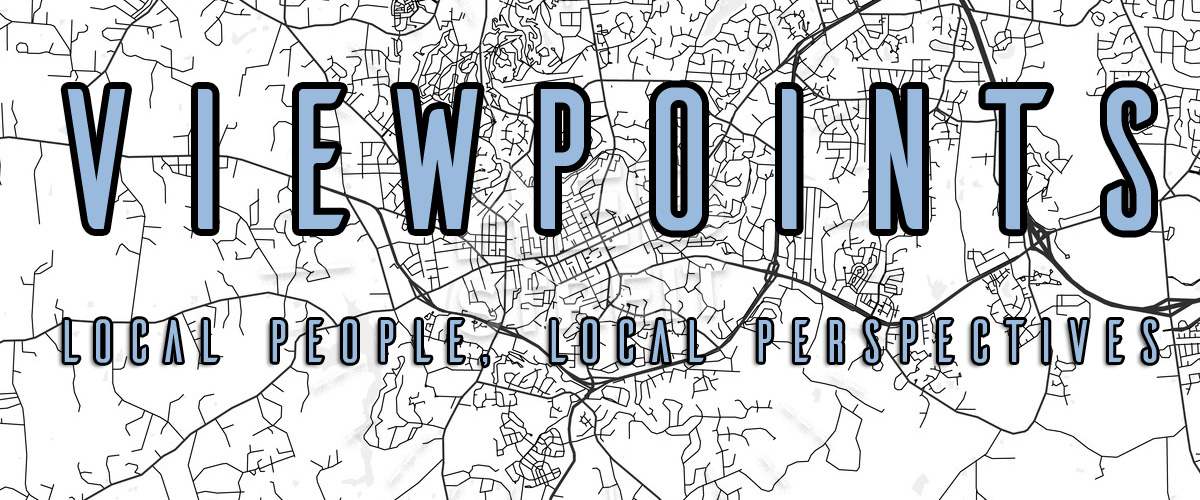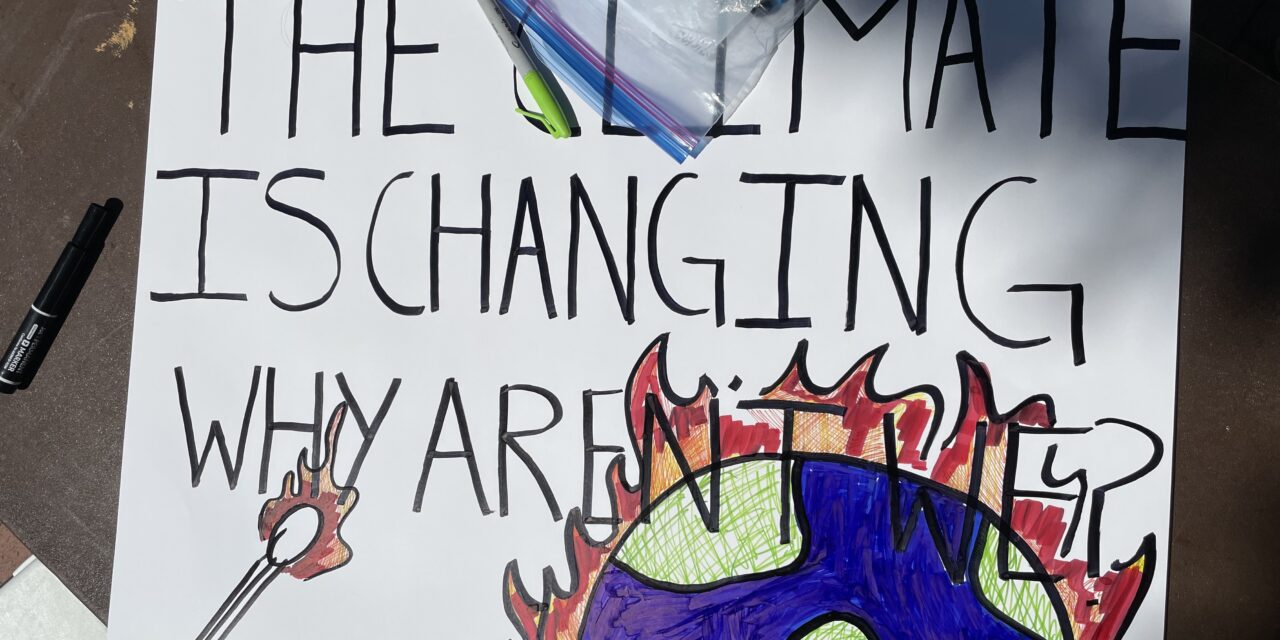
“Viewpoints” is a place on Chapelboro where local people are encouraged to share their unique perspectives on issues affecting our community. If you’d like to contribute a column on an issue you’re concerned about, interesting happenings around town, reflections on local life — or anything else — send a submission to viewpoints@wchl.com
Front Seat to Climate Change, Yet No Seat at the Table
A perspective from Avanti Godbole
In 2019, Director Bong Joon Ho masterfully depicted the relationship between climate change and class through his Oscar award winning film “Parasite”. Through the movie, the audience follows the life of the lower class Kims’ juxtaposed with the life of the upper class Parks’. In one particularly poignant scene, the Kim family flees their home during a storm as their basement apartment floods, while the following morning the Park family comments that they are so thankful for the rain as it has cleared all of the pollution and made the air so crisp.
Recently, the Glasgow Climate Summit (COP26) finished where world leaders are convening to discuss climate change mitigation strategies. During the summit, officials engaged in lively conversations about becoming carbon neutral, and negotiate strategies to limit global warming by 1.5 degrees Celsius. Rich countries will promise $100 billion dollars a year to help poorer countries manage the adverse effects of climate change, and like always, these wealthy nations will never meet that promise.
This is not working. These annual conferences where old and wealthy people discuss 10, 30, and 50 year plans are not sustainable and remove pressure from governments to take immediate action. We no longer have the luxury of time. More importantly, these leaders making policy and decisions are not the ones experiencing the day-to day impact of climate change. There are crucial people whose insights and lived experiences are missing from these conversations.
Indigenous activists, farmers, and trade unionists have all mobilized in protest of COP26 noting that the summit is merely greenwashing for the sake of saying action is being taken in regards to climate change. The perspectives of people who are living through the devastating impact of climate change is essential and without it, millions of lives will be lost.
Climate change is a massive public health problem, but understanding the implications and severity is challenging since the impact of climate related deaths often cannot be tied down to one specific health outcome. Earlier this year we saw the Pacific Northwest experience a massive heatwave, followed by uncontrollable wildfires which polluted the air to the point of a noticeable increase in youth asthma related emergency visits. Farmers in lower income countries are seeing a decrease in crop by over 6% due to drought and new crop disease which is leading to an increase in gastrointestinal disease, cardiovascular disease, and cognitive defects amongst malnourished children. Extreme weather such as hurricanes and tornadoes will continue to disproportionally affect those most vulnerable and cause needless loss of life.
Climate privilege is real and jades those of us who are not experiencing the impacts of climate change first hand. A report done by the Joseph Rowntree Foundation found that lower-income and other disadvantaged groups contribute least to climate change but are the most negatively affected by it. Having lower access to institutions also means they have less power in policy and decision making. We need policy and solutions that give a voice to the affected individuals and pressure our elected officials to keep climate related deaths at the forefront of their political agenda.
Conservatives continuously admonish the Green New Deal making wild claims that it would confiscate American cheeseburgers and cars, and force people to ride in public transit powered by unicorn tears (yes, unicorn tears). Needless to say these scare tactics hold no weight, and the Green New Deal is the sweeping and urgent climate action plan that we need to avoid an irreversible climate disaster. More importantly, the policy centers marginalized voices and directly calls on grassroots activists for input in the policy decision making. In fact the “Just Transition” is embedded in the Green New Deal, which directly helps communities who are currently experiencing climate related disasters and economic loss. Elected officials need to be held accountable to pass the Green New Deal and be vocal in support of the policy.
Climate change and class are inextricably intertwined, the same event in the same area can have two profoundly different lived experiences. We need to hear from the people whose homes are being destroyed now, not from those who are breathing a bit better tomorrow.


